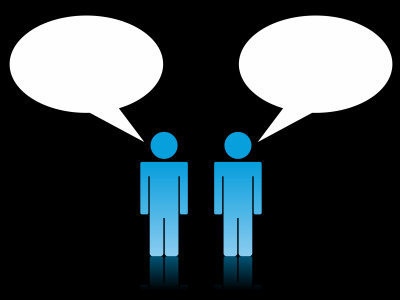5 points to distinguish an expert from a self-assured amateur

In the pandemic of the new coronavirus infection, the first infectious disease that humankind encountered in 2019, medical and epidemiological experts considered various facts and concluded 'I don't know'. It was common to see ignorant commentators pedantic and showing incorrect knowledge. In this way, a real expert explains the important ``how to distinguish people who are just talking with experts with full confidence'' as opportunities to come into contact with information sent by various people increase.
Five ways to tell if someone is an expert, or just confident – from an actual expert
According to Thora Tenbrink, a linguist at Bangor University in England, who has been studying how humans express their knowledge and confidence for more than 20 years, the way people express their expertise is how they express their confidence. It's very similar to how you do it. Therefore, it seems that it is relatively easy to utter words full of conviction without having specialized knowledge.

Therefore, Mr. Tembrink said, ``In a world where hoaxes tend to spread, real expertise becomes important.'' summarized in
◆1: Is the person's background professional?
In the academic world, it is possible to identify how much expertise a person has by objective measures such as past achievements and career. The difference between experts and beginners is manifested in differences in their ability to recognize and classify complex facts, as well as differences in their memory.
Of course, it is possible that the person speaking in front of you has acquired specialized knowledge in an unexpected place, but there is no connection between the background of the person and the expertise they are talking about. If you don't, most likely you're just bragging about a topic you don't even know well. Therefore, even in everyday life, Mr. Tembrink advised that knowing the background of the person is helpful in correctly taking the person's remarks.

◆2: Is the person a good listener?
People have their own style of communication, some people talk aggressively and try to dominate the conversation, while others listen carefully and only offer opinions and views when they are well-founded.
The style of communication is important for professionals. It will be connected.
From this point of view, Mr. Tembrink said, ``It is also important to listen quietly at times.
◆3: Is the person digging deep?
'It's easy to go to extremes,' Tenbrink said. 'Experts have detailed information and can provide it, but less knowledgeable people are forced to stay at the surface level.' ' and pointed out that experts can talk about things in depth.

People with superficial knowledge often repeat the same message without detailed explanation. The problem here is that when people hear the same thing over and over again, they tend to believe it.
A 2021
◆4: Is it okay to assert that?
A certain degree of uncertainty accompanies past and future events that we have not seen with our own eyes or that cannot be reproduced by scientific experiments. Experts are well aware that there are limits to certainty, so we use words like 'may' and 'may be' when necessary to express uncertainty. express.
At this time, Tenbrink emphasizes that it is necessary to pay attention to the decisive difference between 'I don't understand it well' and 'I don't understand it well'. This is because the expert knows everything there is to know about something, while the layman just doesn't know the facts that are available.

◆5: Can information be provided flexibly?
Tenbrink explained the difference between an expert and an amateur, using the example of 'a person who knows the route and Google Maps' automatic route guidance'. A person who knows a lot about a route can explain in detail where it is easy to get lost, or omit the route that the person being taught already knows, but a navigation app cannot do that.
Similarly, a true expert can easily and flexibly use the concepts and terminology of his/her field and adapt his or her response to the needs of the listener, whereas a non-expert cannot. That's what I mean.
Related Posts:
in Note, Posted by log1l_ks







